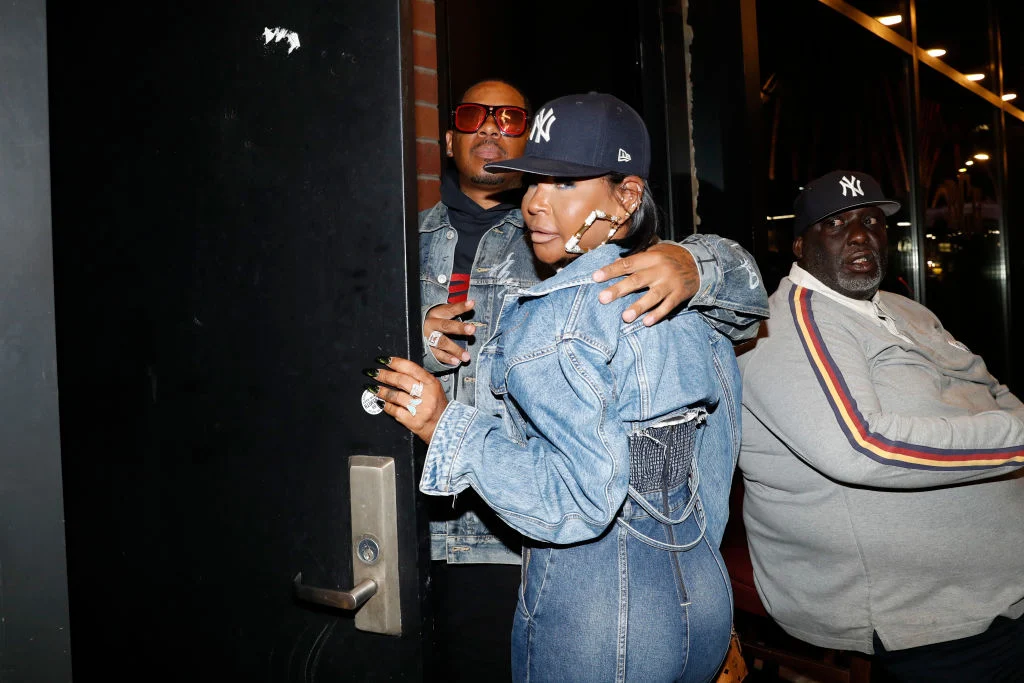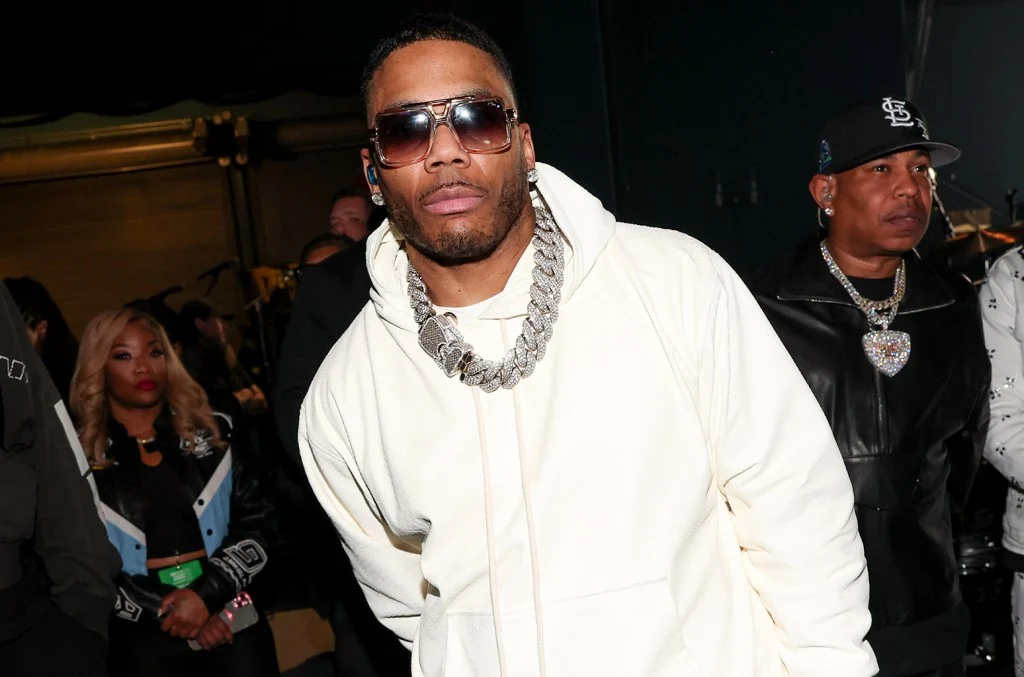Lawsuit
Page: 8
HipHopWired Featured Video
Smokey Robinson and his wife were named in a $50 million lawsuit brought by four housekeepers who allege that the singer raped and abused them for almost 20 years. The four unnamed housekeepers say Smokey Robinson forced them to have sex in his Los Angeles home between 2007 to 2024.
We wish to urge caution in proceeding, as the details of the acts explained in the lawsuit filing might be disturbing to some.
Billboard reports that the lawsuit was filed on Tuesday (May 6) in Los Angeles County Superior Court. The four housekeepers say that the alleged acts took place at Smokey Robinson’s home in the Chatsworth neighborhood.
“Plaintiffs did not consent to defendant Smokey Robinson’s sexual contact or touching,” John W. Harris, an attorney representing the four housekeepers, wrote in the initial filing. “Plaintiffs explicitly told defendant Robinson on numerous occasions that they were not interested in his advances and objected to his forceful, physical, sexual, and harmful conduct.”
The four Jane Does, all numbered in sequence as such, stated in the filing that Robinson would have them come inside his bedroom, where he was wearing only his underwear. They claim Robinson would put down a towel and force the housekeepers to have oral and vaginal sex without protection.
One of the women say they didn’t report the crimes to the authorities “due to her fear of losing her livelihood, familial reprisal, public embarrassment, shame and humiliation to her and her family, the possible adverse effect on her immigration status, as well as being threatened and intimidated by defendant Smokey Robinson’s well-recognized celebrity status and his influential friends and associates.”
Frances Robinson, Robinson’s wife, was named in the suit for not preventing the assault and for creating an abusive and hostile working environment against the housekeepers, including allegations that she used racial slurs against them.
Smokey Robinson has yet to publicly respond to the lawsuit and the claims within.
—
Phot: Roy Rochlin / Getty
HipHopWired Featured Video
Source: Courtesy of Damon Dash / Damon Dash
Damon Dash’s legal troubles continue to follow him. A judge has ruled he is now facing arrest for not providing documents pertaining to lawsuit judgements.
As per XXL, the former Cake-a-holic has been given one last opportunity to provide a court information pertaining to some judgements against him. On April 29, Judge Robert W. Lehrburger ordered Dame Dash to provide detailed records about his available assets by March 10 in an effort to make good on one million dollars worth of monies due to two individuals that have seperstely sued him and won.
That deadline has since passed and the magistrate was none too pleased. In a new ruling filed on Monday (May 5), the judge extended the due date to May 9. If Damon Dash does not comply he could be arrested. “If Defendants fail to comply, the Court will find Defendants in contempt and may issue an arrest warrant for Mr. Dash to bring him to Court to respond to the discovery sought,” the documentation reads. “Additionally, sanctions will be imposed, which may include drawing adverse inferences, preclusion, and/or monetary sanctions.”
Back in 2019 filmmaker Josh Webber sued Dash for copyright infringement and defamation over the Dear Frank movie. The ruled in favor of Webber awarding him $900,000. Edwyna Brooks also filed a lawsuit against the former Roc-A-Fella executive for copyright infringement and she too was awarded the win with a $100,000 ruling. Both plaintiffs claim Dame has been hiding his assets in order to avoid payment. At this time Dash has yet to comment on the possibility of arrest.
HipHopWired Featured Video
Misa Hylton, a celebrity stylist and designer for several stars, launched a lawsuit against one of her former clients in Mary J. Blige. Misa Hylton’s complaint alleges that the R&B singer botched a management deal for Harlem rapper Vado, and she’s suing Mary J. Blige for $5 million.
All Hip Hop got the exclusive scoop on Misa Hylton’s and her talent agency, M.I.S.A. Management’s lawsuit against Mary J. Blige. Hylton is accusing Blige of keeping Vado’s completed album from being released in a bid to get him to cut business relations with Hylton. Blige and Vado worked together on the non-album single, “Still Believe In Love,” in 2023.
Along with Blige, the singer’s Beautiful Life Productions is also named in the suit, with the complaint documents stating that Hylton’s company is entitled to 20 percent of Vado’s earnings. The suit also adds that Blige attempted to lure Vado away from Hylton in an attempt to break his deal with her.
The suit also names Blige’s chief of security in the suit, claiming that he wanted to sign Vado to a contract while also steering him away from Hylton’s team. That same security chief is said to be Blige’s romantic partner.
—
Photo: Johnny Nunez / Getty
HipHopWired Featured Video
Source: Daniel LEAL / AFP / Daniel LEAL / AFP
The lawsuit filed by Drake against Universal Music Group was amended Wednesday (April 16) to include a new complaint, specifically that the music label used Kendrick Lamar’s Grammy wins and his Super Bowl halftime show performance of “Not Like Us” to promote the single and damage his reputation further. The new addition makes the suit 107 pages in total to account for new allegations.The new complaint states that the halftime performance by Kendrick Lamar, which was seen by 133 million people “including millions of children,” who had “never before heard the song or any of the songs that preceded it. It was the first, and will hopefully be the last, Super Bowl halftime show orchestrated to assassinate the character of another artist.” It goes on to allege that Kendrick Lamar purposefully excluded the word “pedophile” from the song, stating that “on information and belief” that he wouldn’t have been able to perform without that exclusion. The suit also claims that UMG caused intentional harm by negotiating the performance and promoting it afterward, as well as citing that the use of a photo of his Toronto home led to a shooting incident days after the release.The legal team for Drake also claimed that UMG CEO Lucian Grainge hugged and gave a high-five to Dr. Dre as “Not Like Us” played at the Grammy Awards (a YouTube clip of the interaction that was posted doesn’t have the song in the background, however) and that the crowd was singing along to “Not Like Us,” which would win Song and Record of the Year. Another allegation that remains is that bots were used by UMG to push the song on streaming platforms like Spotify. The claim was initially floated by an undisclosed person who appeared on DJ Akademiks’ show to claim he was paid to push the songs by Interscope.UMG issued a lengthy and bruising response to the amended complaint shortly after, writing in part: “Two weeks ago, his representatives celebrated a ‘win’: the granting of a routine discovery motion. That ‘win’ will become a loss if this frivolous and reckless lawsuit is not dropped in its entirety because Drake will personally be subject to discovery as well. As the old saying goes, ‘be careful what you wish for.’”
HipHopWired Featured Video
Source: Getty / General
The twists and turns continue with Diddy’s trial. He has plead not guilty to new charges and his defense may ask to postpone the start date of the trial.
As spotted on Deadline, the mogul was charged with one count of sex trafficking by force, fraud or coercion, and one count of transportation to engage in prostitution as part of a superseding indictment. On Monday, April 15, he appeared in a New York City courtroom and formally submitted a not guilty plea. In addition his defense argued that the prosecutor has been less than forthright with the disclosure of evidence. Hence they are considering requesting that the trial be postponed.
Diddy’s lawyers Marc Agnifilo and Teny Geragos say that the U.S. Attorney’s Office has not been sharing all the communications they have in their possession; specifically those from Diddy’s former employees. Furthermore they casted doubt on whether the prosecutors actually have the messages in question saying “it’s troubling to us.” As a result, Diddy’s defense team revealed that they might file for an adjournment of the case in hopes of delaying the trial another two weeks in order to sort out any issues with the evidence. After the court hearing Agnifilo told the press that they will not seek the adjournment if the prosecutors “get their act together.” Judge Arun Subramanian has given Diddy’s legal team 48 hours to file the adjournment if they are still interested in pursuing that request.
Diddy’s trial is set to commence May 5. The next hearing is scheduled for later this week.
Quavo is facing a copyright lawsuit centered on a recent music video — not over an uncleared sample or a stolen melody, but a quartz sculpture of a 1961 Ferrari that he used as a prop.
In a complaint filed late last month, attorneys for sculptor Daniel Arsham claim the rapper (Quavious Marshall) “unlawfully exploited” the Ferrari sculpture by rapping in front of it in a video he posted to TikTok and other social platforms in December.
“Without his consent, and without his knowledge, defendants created a video which prominently featured the artwork to promote the music of Quavo,” Arsham’s lawyers write in the March 31 lawsuit. “Mr. Arsham never consented to the artwork being used in the infringing content.”
Trending on Billboard
Arsham created the sculpture — fully entitled “Quartz Eroded 1961 Ferrari GT” — in 2018 as part of a series portraying famous cars that have been “eroded” like an ancient archeological find. He says it’s been publicly displayed twice, most recently at Los Angeles’ Petersen Automotive Museum in 2023.
In December, Quavo posted a video to Instagram and other platforms under the caption “Back To The Basics 2025!!”, featuring him rapping in front of what appears to be Arsham’s work. The video, which remains on TikTok, focuses heavily on the sculpture, including close-ups on its eroded features.
Just like music, books and paintings, sculptures are protected by federal copyright law, and reproducing one without permission can theoretically amount to infringement. Back in 2018, the artist behind Chicago’s “Bean” sculpture sued the National Rifle Association for using the famed statue in a promotional video.
Copyrighted works captured in the background of video footage raise tricky legal questions. A federal judge ruled in 2018 that a Detroit graffiti artist could move ahead with suing General Motors after his mural appeared in a Cadillac commercial. But last year, another federal judge dismissed a case filed by a photographer whose image briefly appeared in the background of a documentary about Billie Eilish.
In his lawsuit, Arsham says the use of his sculpture was hardly coincidental or brief: “The infringing video features Quavo performing in front of the Artwork. The Infringing Video is 45 seconds long and features the Artwork prominently throughout.”
According to the artist’s attorneys, when Quavo posted still images of the video to Instagram, he actually tagged Arsham’s Instagram handle in the caption. They say that not only confirms that he knew he was using a copyrighted work, but also violated Arsham’s likeness rights.
“Mr. Arsham never consented to his name being used in connection with the Infringing Post or any promotion of Quavo,” his attorneys wrote. “Defendants are using Mr. Arsham’s name for commercial advantage.”
A rep for Quavo did not immediately return a request for comment on Friday (April 11). The lawsuit also names Quavo’s label, Quality Control Music, and its parent company, HYBE America, as co-defendants.
HipHopWired Featured Video
Source: MEGA / Getty
Soulja Boy will have to pay his former assistant $4 million in compensatory damages and an additional $250,000 in punitive damages in connection with a civil lawsuit. Jane Doe accused Soulja Boy of assault, sexual battery, and harassment and launched a lawsuit in 2021.
Both Rolling Stone and Pitchfork have extensively covered the case involving Soulja Boy and Jane Doe, with details coming forth that the pair did enter into a consensual physical relationship that later took a turn for the worse, according to Doe.
Speaking with Rolling Stone, Jane Doe said that while she feels vindicated, her hope is that the “Crank That” rapper won’t do this again to anyone else.
“I feel like I got justice. Obviously, it’s not going to return everything I lost. I lost way more than I gained. My hope is he doesn’t do this to any more women,” Doe told the outlet.
In a statement to the outlet, Soulja Boy is vowing to appeal the matter.
“The district attorney never filed charges. I was never charged or convicted of this, criminally. So, to be accused of this civilly is beyond me. I’ve never done any of the things they’re accusing me of. I just feel like this is very unfair,” the rapper born DeAndre Cortez Way said to Rolling Stone.He then added, “I want to make it clear that I’m innocent. This case was never about justice. It was about money and personal gain, and I will not let that stand. I am committed to filing an appeal and fighting for the truth to be revealed.”For victims of sexual assault, domestic partner violence, and abuse, please see the following to find out how to get assistance:
RAINN National Sexual Assault Hotlinehttps://www.rainn.org1 800 656 HOPE (4673)
Crisis Text LineSMS: Text “HELLO” or “HOLA” to 741-741
The National Domestic Violence Hotlinehttps://thehotline.org1-800-799-SAFE (7233)
—
Photo:
Nelly’s former St. Lunatics bandmate Ali wants to drop a lawsuit that had accused the rapper of failing to pay him for his alleged work on Nelly’s 2000 debut album Country Grammar. But Nelly’s lawyers say Ali and his lawyers must pay for bringing a “ridiculous” case.
The action, filed last year, alleged that Nelly (Cornell Haynes) had cut four of his former St. Lunatics crew out of the credits and royalty payments for the hit album. It claimed the star had repeatedly “manipulated” them into falsely thinking they’d be paid for their work.
But three of the St. Lunatics quickly dropped out, saying they had never actually wanted to sue Nelly and had never given legal authorization to the lawyers who filed the case. And in recent months, Nelly’s lawyers had sought punishing sanctions against those attorneys.
Trending on Billboard
In a motion filed Thursday (April 10), Ali and his lawyers moved to voluntarily dismiss the case. They offered no rationale for why they were doing so, and there was no indication that a settlement of any kind had been reached. They did not immediately return a request for comment.
Nelly’s attorneys aren’t going to let him off the hook that easily. In a quick response, they urged the judge to refuse to dismiss the case until he decides whether Ali and his attorneys should face punishment for filing a “vexatious” lawsuit that “should never have been brought.”
“Plaintiff’s counsel succeeded in its frivolous campaign aimed at forcing Haynes to spend money defending Plaintiff’s ridiculous time-barred claims,” the star’s lawyers write. “The Court is respectfully requested to retain jurisdiction and set a briefing and hearing schedule for [potential sanctions].”
Nelly rose to fame in the 1990s as a member of St. Lunatics, a hip-hop group also composed of St. Louis high school friends Ali (Ali Jones), Murphy Lee (Tohri Harper), Kyjuan (Robert Kyjuan) and City Spud (Lavell Webb). With the June 2000 release of Country Grammar — which spent five weeks atop the Billboard 200 — Nelly broke away from the group and started a solo career that later reached superstar heights with his 2002 chart-topping singles “Hot in Herre” and “Dilemma.”
In September, all four St. Lunatics accused Nelly of cheating them out of compensation for contributions they’d made to Country Grammar. They claimed they had waited so long to sue because they believed their “friend and former band member would never steal credit” from them.
But a month later, the lawsuit took a strange turn: Nelly’s lawyers filed a letter warning that Lee, Kyjuan and Spud had never actually wanted to sue Nelly and that they had not given legal authorization to the lawyers who filed the lawsuit to include them as plaintiffs.
“They are hereby demanding you remove their names forthwith,” Nelly’s lawyers wrote in a letter to Walton. “Failure to do so will cause them to explore any and all legal remedies available to them.”
In November, Ali’s attorneys filed an updated version of the lawsuit listing only Ali as a client and vowed to fight on. But Nelly’s attorneys have since argued that the case is “frivolous,” claiming it was clearly filed years after the statute of limitations had expired. In January, they said it was so obviously flawed that the lawyers who filed it should be punished for going to court.
“Plaintiff and his counsel should be sanctioned in the full amount … that Haynes has been forced to incur in defending this action,” the rapper’s lawyers wrote at the time. “That is because plaintiff’s claims should never have been brought in the first place.”
Last month, the judge overseeing the case said he would not rule on that motion until he decided whether to dismiss the case. Such a motion to dismiss from Nelly’s attorneys was pending when the case was voluntarily dropped.
A federal judge says President Donald Trump must face a copyright lawsuit filed by the estate of Isaac Hayes over the president’s alleged use of the 1966 song “Hold On, I’m Coming” on the campaign trail. In a ruling issued Wednesday (April 2), court records show that Judge Thomas Thrash Jr. denied a motion by […]
A federal judge says Drake can move forward with discovery in his defamation lawsuit against Universal Music Group (UMG) over Kendrick Lamar’s diss track “Not Like Us,” allowing his attorneys to begin demanding documents like Lamar’s record deal.
UMG had asked Judge Jeannette A. Vargas to halt the discovery process last month, arguing that Drake’s case was so flawed that it would likely be quickly dismissed — and that the star was unfairly demanding “highly commercially sensitive documents” in the meantime.
But at a hearing Wednesday (April 2) in Manhattan federal court, the judge denied that motion in a ruling from the bench. The judge had hinted in earlier rulings that she does not typically delay discovery before deciding if a case will be dismissed, barring extraordinary circumstances.
Trending on Billboard
In response to the ruling, Drake’s lead attorney Michael Gottlieb said: “Now it’s time to see what UMG was so desperately trying to hide.” An attorney for UMG declined to comment, and a spokesman for the company did not immediately return a request for comment.
Lamar released “Not Like Us” last May amid a high-profile beef with Drake that saw the two stars release a series of bruising diss tracks. The song, a knockout punch that blasted Drake as a “certified pedophile” over an infectious beat, eventually became a chart-topping hit in its own right and was the centerpiece of Lamar’s Super Bowl halftime show.
In January, Drake took the unusual step of suing UMG over the song, claiming his label had defamed him by boosting the track’s popularity. The lawsuit, which doesn’t name Lamar himself as a defendant, alleges that UMG “waged a campaign” against its own artist to spread a “malicious narrative” about pedophilia that it knew to be false.
UMG filed a scathing motion seeking to dismiss the case last month, arguing not only that it was “meritless” but also ridiculing Drake for suing in the first place. Days later, the company asked Judge Vargas to pause discovery until she ruled on that motion, warning that exchanging evidence would be a waste of time if the case was then immediately tossed out of court.
But in a quick response, Drake’s lawyers argued discovery must go on because the lawsuit was not going anywhere: “UMG completely ignores the complaint’s allegations that millions of people, all over the world, did understand the defamatory material as a factual assertion that plaintiff is a pedophile.”
Following Wednesday’s decision, Drake’s attorneys will now continue to push ahead with seeking key documents and demanding to depose witnesses. That process will continue unless the judge grants UMG’s motion in the months ahead and dismisses the lawsuit.
In the earlier filings in the case, UMG attached the actual discovery requests filed by Drake’s team, detailing the materials his attorneys are seeking.
Among many others, they want documents relating to decisions on “whether to omit or censor any lyrics” from “Not Like Us” during the Super Bowl halftime show; anything related to the promotion of the song on Spotify and Apple Music; and any communications with the Recording Academy ahead of Lamar’s string of award wins at the Grammy Awards in February; and “all contracts and agreements between you and Kendrick Lamar Duckworth, his agents, or anyone working on his behalf.”

 State Champ Radio
State Champ Radio 










